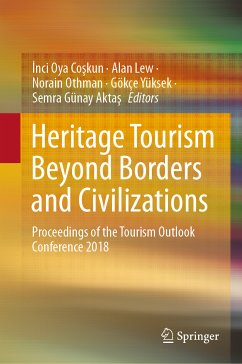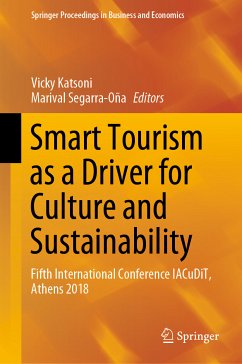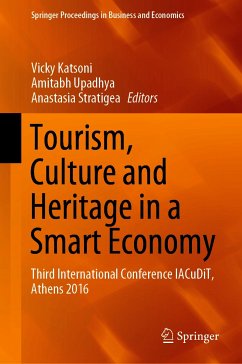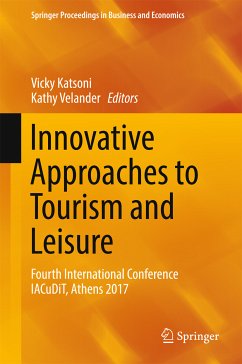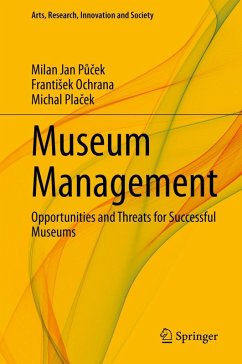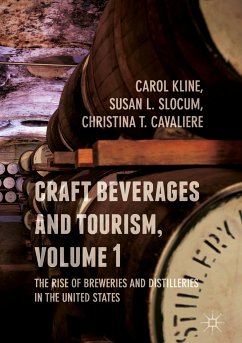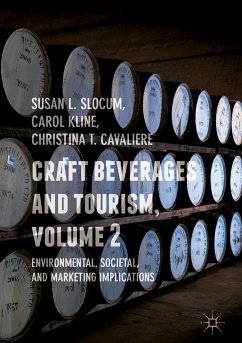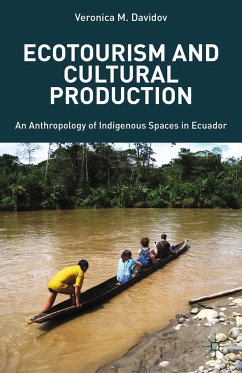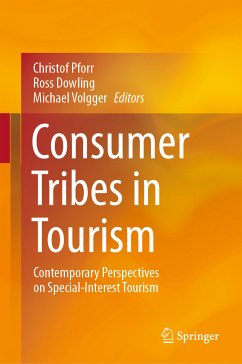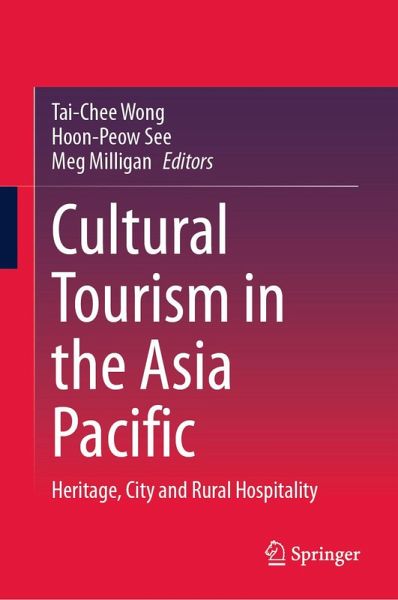
Cultural Tourism in the Asia Pacific (eBook, PDF)
Heritage, City and Rural Hospitality
Redaktion: Wong, Tai-Chee; Milligan, Meg; See, Hoon-Peow
Versandkostenfrei!
Sofort per Download lieferbar
136,95 €
inkl. MwSt.
Weitere Ausgaben:

PAYBACK Punkte
68 °P sammeln!
This book covers multiple cultural tourism aspects including among others, nature and rural conservation policy and conflicts, reflected in case studies, and ethnic minority heritage and their folklore traditions and performances, as well as tourism activities in the city areas. It provides a distinguished quality and an innovative focus to the existing literature by highlighting the unique features and development experience in cultural tourism in the Asia Pacific in both the rural and urban setting. The book has a strong appeal to an international audience, including both tertiary institutio...
This book covers multiple cultural tourism aspects including among others, nature and rural conservation policy and conflicts, reflected in case studies, and ethnic minority heritage and their folklore traditions and performances, as well as tourism activities in the city areas. It provides a distinguished quality and an innovative focus to the existing literature by highlighting the unique features and development experience in cultural tourism in the Asia Pacific in both the rural and urban setting. The book has a strong appeal to an international audience, including both tertiary institution academics and students, seeking a better understanding of public policy and cultural tourism practices in the contemporary world.
Dieser Download kann aus rechtlichen Gründen nur mit Rechnungsadresse in A, B, BG, CY, CZ, D, DK, EW, E, FIN, F, GR, HR, H, IRL, I, LT, L, LR, M, NL, PL, P, R, S, SLO, SK ausgeliefert werden.



